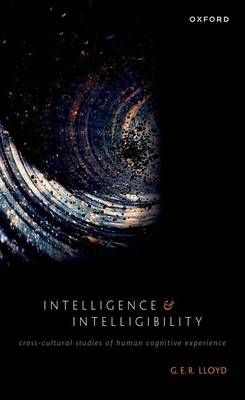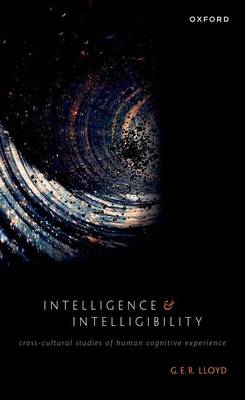
- Afhalen na 1 uur in een winkel met voorraad
- Gratis thuislevering in België vanaf € 30
- Ruim aanbod met 7 miljoen producten
- Afhalen na 1 uur in een winkel met voorraad
- Gratis thuislevering in België vanaf € 30
- Ruim aanbod met 7 miljoen producten
Zoeken
Intelligence and Intelligibility
Cross-Cultural Studies of Human Cognitive Experience
G E R Lloyd
Paperback | Engels
€ 48,45
+ 96 punten
Uitvoering
Omschrijving
Across several intellectual disciplines there exists a tension between an appreciation of the cognitive capacities that all humans share and a recognition of the great variety in their manifestations in different individuals and groups. In this book G. E. R. Lloyd examines how, while avoiding the imposition of prior Western assumptions and concepts, we can reconcile two conflicting intuitions: that all humans share the same basic cognitive capacities and yet their actual manifestations in different individuals and groups differ appreciably. Lloyd investigates the cultural viability of analytic tools we commonly use (such as the contrasts between the literal and the metaphorical, between myth and rational account, and between nature and culture themselves) and the categories that we employ to organize human experience (like mathematics, religion, law, and aesthetics). The end result is a robust defence, within limits, of the possibilities of mutual intelligibility--one which recognizes both the diversity in the manifestations of human intelligence and the need to revise our assumptions in order to achieve that understanding.
Specificaties
Betrokkenen
- Auteur(s):
- Uitgeverij:
Inhoud
- Aantal bladzijden:
- 176
- Taal:
- Engels
Eigenschappen
- Productcode (EAN):
- 9780192867315
- Verschijningsdatum:
- 27/01/2023
- Uitvoering:
- Paperback
- Formaat:
- Trade paperback (VS)
- Afmetingen:
- 140 mm x 208 mm
- Gewicht:
- 204 g

Alleen bij Standaard Boekhandel
+ 96 punten op je klantenkaart van Standaard Boekhandel
Beoordelingen
We publiceren alleen reviews die voldoen aan de voorwaarden voor reviews. Bekijk onze voorwaarden voor reviews.











